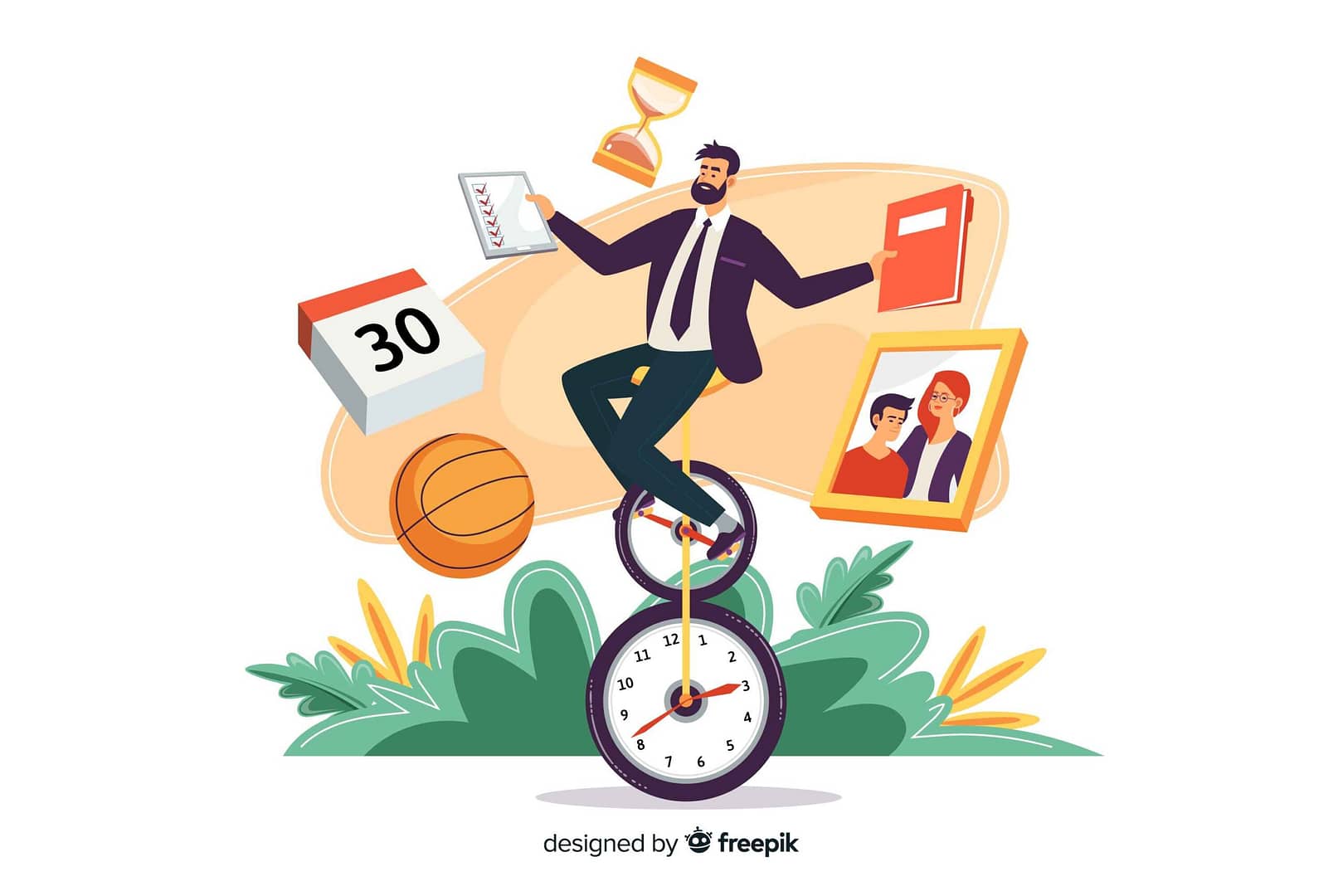Decoding the Multitasking Mirage
In today’s fast-paced world, multitasking has become a common practice. We often find ourselves trying to do several things at once, believing it makes us more efficient. But is multitasking truly effective, or is it just an illusion?
Multitasking, doing multiple tasks simultaneously, is everywhere—in work, at home, and even during leisure time. But underneath its surface lies a complex reality that challenges its effectiveness.
In this article, we’ll uncover the truth behind multitasking. We’ll explore why our brains struggle with it and how it affects our productivity and well-being. Let’s peel back the layers of multitasking and understand its psychological realities.
Multitasking:
Multitasking means doing more than one thing at the same time or switching between tasks quickly. Many believe it makes us more productive, but that’s not always true.
Some think multitasking lets us get more done in less time, but it often leads to lower productivity. In this article, we’ll explore why multitasking isn’t as effective as we think and how it affects our performance. Let’s uncover the truth behind multitasking together.

The Multitasking Mirage:
The multitasking mirage is when we think we’re getting more done by doing many things at once, but in truth, we’re less effective. Research shows that switching between tasks actually slows us down and makes us make more mistakes.
When we multitask, our brains struggle to focus, remember things, and make decisions. This means we might take longer to finish tasks and not do them as well.
In simple terms, multitasking tricks us into thinking we’re being productive, when we’re actually just spreading ourselves too thin. Understanding this can help us focus better and get more done in the long run.
Psychological Realities: Decoding the Multitasking Mirage
Cognitive Overload
Multitasking puts a strain on our brain’s ability to focus and remember things. When we try to do too much at once, our attention gets scattered, making it hard to concentrate on any one thing. For example, if we’re texting while trying to study, we might find it difficult to remember what we’ve learned.
This overload can also make decision-making tough. With our attention divided, we may struggle to make good choices. Imagine trying to plan your schedule while listening to loud music—you might end up making hasty decisions without thinking them through.
In simple terms, multitasking taxes our brain’s resources, making it harder to stay focused, remember things, and make smart decisions. Recognizing this can help us prioritize tasks and focus on one thing at a time for better performance.
Reduced Productivity
Multitasking doesn’t make us better at getting things done—it actually slows us down. Here’s why:
1. Inefficient Task Switching: When we switch between tasks, our brains need time to refocus. This switching back and forth takes up mental energy and slows us down.
2. Impact on Task Time: Every time we switch tasks, it takes a while for our brains to get back on track. This adds up over time, making tasks take longer to complete. For example, if we’re texting while trying to do homework, it’ll take us longer to finish because we’re constantly switching our focus.
In simple terms, multitasking makes us less efficient because it interrupts our workflow. By focusing on one task at a time, we can get things done faster and more effectively.
Impaired Memory
Multitasking doesn’t just make it hard to focus—it messes with our memory too. Here’s how:
1. Memory Mess-Up: When we try to do too many things at once, our brains struggle to remember stuff. It’s like trying to juggle too many balls at once—some are bound to drop.
2. Research Shows: Studies prove that multitasking while trying to learn or remember things leads to worse memory. For example, if we try to study while texting, we’ll likely forget what we studied because our brain wasn’t fully focused.
3. Real-Life Examples: Think about times when you’ve tried to listen to music while studying. You might find that you can’t recall much of what you studied because your attention was divided.
In simple words, multitasking messes with our memory. To remember things better, it’s best to focus on one thing at a time.
Increased Stress
Multitasking doesn’t just make us busy—it also makes us stressed out. Here’s why:
1. Feeling Overloaded: When we try to do too many things at once, it’s like our brain gets overwhelmed with too much information. This can leave us feeling frazzled and stressed.
2. Anxious Vibes: Constantly switching between tasks can trigger feelings of anxiety. It’s like our brain is constantly on alert, trying to keep up with everything we’re doing.
3. Pressure Cooker: Multitasking can make us feel like we’re under a lot of pressure to get everything done. It’s like having a never-ending to-do list that keeps getting longer and longer.
In simple words, multitasking can leave us feeling stressed and anxious. To feel calmer, it’s better to focus on one thing at a time and take breaks when needed.
Decreased Creativity
Multitasking doesn’t just mess with our productivity—it also puts a damper on our creativity. Here’s how:
1. Brain Overload: When we try to do too much at once, our brain gets overloaded with info, making it hard to think creatively. It’s like our creative thoughts get lost in the chaos.
2. Lack of Focus: Multitasking splits our attention, making it tough to really dive deep into any one thing. This makes it hard for creative ideas to come to the surface.
3. Less Brain Power: Our brains have limited energy. When we spread ourselves thin by multitasking, there’s less brainpower left for creative thinking. It’s like trying to run a race with a low battery—it’s not as effective.
Research shows that focusing on one task at a time helps us think more creatively. So, if you want to boost your creativity, try to avoid multitasking and give your full attention to one thing at a time.

Impaired Decision Making Decoding the Multitasking Mirage
Multitasking doesn’t just slow us down—it makes it harder for us to make good decisions too. Here’s why:
1. Split Attention: When we multitask, our attention is spread thin. This makes it tough to focus on each task properly, leading to rushed decisions.
2. Quick Choices: Multitasking often leads to impulsive decision-making. We’re more likely to make snap judgments without thinking things through.
3. More Mistakes: Studies show that multitasking increases the chances of making errors. With our attention divided, we’re more prone to overlooking important details.
In short, multitasking messes with our decision-making skills. To make better choices, it’s best to focus on one thing at a time.
Strained Relationships
Multitasking can hurt our relationships. Here’s why:
1. Not Really Listening: When we multitask during conversations, we’re not really paying attention. This can make the other person feel ignored.
2. Seeming Uninterested: Doing other things while spending time with loved ones can make them feel like we don’t care about them.
3. Being Present Matters: Being fully there for our loved ones shows that we value them. It’s important for building strong connections.
In short, multitasking can damage our relationships. To keep them strong, we need to give our full attention to the people we care about.
Health Impacts Decoding the Multitasking Mirage
Multitasking can harm our physical health too. Here’s how:
1. Eye Strain: Staring at screens for too long while multitasking can make our eyes tired and lead to headaches and blurry vision.
2. Headaches: Multitasking can make us feel stressed, which can trigger headaches and tension in our head.
3. Sleep Problems: Doing too much at once, especially before bed, can mess with our sleep. We might find it hard to fall asleep or stay asleep.
To stay healthy, it’s important to take breaks from multitasking and look after ourselves. This means taking regular screen breaks, managing stress, and getting enough sleep.
ILLUSION of Productivity (The Multitasking Mirage)
Multitasking makes us feel busy, but it doesn’t mean we’re getting a lot done. Here’s why:
1. Feeling Busy: Multitasking makes us feel productive because we’re doing many things at once. But studies show we often overestimate how much we’ve accomplished.
2. Unfinished Tasks: When we multitask, we often leave tasks incomplete or do them poorly because our attention is divided.
To work smarter, not harder:
– Focus on One Task: Finish one thing before moving on to the next.
– Break Tasks Down: Split big tasks into smaller ones to make them more manageable.
– Avoid Distractions: Minimize interruptions to stay focused.
– Take Breaks: Rest helps us stay sharp and focused when we return to work.
By focusing on one thing at a time, we can avoid the multitasking trap and get more done effectively.

Cultivating Mindfulness Decoding the Multitasking Mirage
Mindfulness can help us deal with multitasking’s drawbacks. Here’s how:
1. Benefits: Mindfulness practices, like meditation or deep breathing, keep us focused and calm. They also reduce stress.
2. Tips:
– Start Small: Try short mindfulness exercises, like taking deep breaths.
– Practice Regularly: Set aside a few minutes each day for mindfulness.
– Stay Present: Focus on what you’re doing right now, like eating or walking.
– Be Kind: Don’t worry if your mind wanders. Just bring your focus back gently.
By understanding these psychological realities of multitasking, we can adopt more effective strategies for managing our tasks and improving our overall well-being. It’s time to break free from the multitasking myth and reclaim control over our attention and productivity.
Conclusion (The Multitasking Mirage)
To sum up, multitasking might seem helpful, but it’s not all it’s cracked up to be. We’ve learned that it can actually make us less productive, strain our relationships, and mess with our decision-making.
It’s important to realize the downside of multitasking so we can manage our tasks better. Instead of trying to do everything at once, we should focus on one thing at a time and avoid distractions. Practicing mindfulness can also help us stay calm and focused.
By taking these steps, we can break free from the multitasking trap and lead more balanced and fulfilling lives. So, let’s focus on what’s important and take it one task at a time.
FAQs Decoding the Multitasking Mirage
1. Is multitasking really better for getting things done?
No, research shows that multitasking can make us less efficient and more prone to mistakes.
2. Can anyone become great at multitasking with enough practice?
Not really. True multitasking is rare, and most people are just switching between tasks. It’s a challenge for everyone to handle multiple things at once effectively.
3. How does multitasking affect memory and learning?
Multitasking makes it harder for our brains to remember things. Focusing on one task at a time helps us learn and remember better.
4. Is technology making multitasking worse?
Yes, constant notifications and the temptation to switch between apps can make multitasking habits worse. Setting limits on technology use can help improve focus.
5. What’s a better way to be productive than multitasking?
Instead of multitasking, try mindful monotasking – focusing on one thing at a time. It has been proven to boost productivity, increase creativity, and improve overall performance.
Now it’s your turn! What are your thoughts on multitasking? Do you find it helpful or more of a hindrance? Share your experiences and insights in the comments below.

